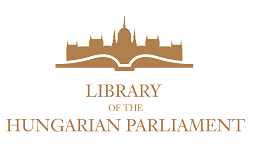Jurisprudence forms a major part of the library’s collection in addition to history and political science. Ever since the foundation of the library, it has played a decisive role in the acquisition policy of the Library of the Hungarian Parliament. The following collection principles, still valid today, were laid down in the printed catalogue of the library in the early 1890s: “The main discipline of the library is the broad realm of law and political sciences. There must be a reference library specialised in this field. All the documents that can come under the boundlessly large concepts of law and state are the daily bread of the parliamentary library.”
The library collects literature on Hungarian law, which includes law monographs, volumes of studies and journals, while other types of domestic legal information, i.e. resources of statutory law, collections of statutes, official periodicals as well as published resources of the application of law, various collections of court decisions and casebooks are also preserved in the holdings. Supplementing literature on Hungarian law is a wide range of foreign law works and journals – primarily in English, German and French – in the collection. In addition to the current, up-to-date legal literature and the legislation in force, historical documents can also be searched.
The literature on Hungarian law received by the library is fully processed. The Catalogue, which is also available on the website, contains bibliographic data on legal literature in both Hungarian and foreign languages (books, articles and studies) published in Hungary dating back to 1811. Bibliographic data of selected articles from over 300 foreign law journals and almanacs up to 2010 are also available here.
Research of the literature on law is also facilitated by the library’s subscribed full-text online databases, which can be accessed by registered library users remotely, even from home, via eduID. In the following, you can find an overview of the main, mostly freely available, full-text Hungarian and foreign online resources and digital collections, which are indispensable tools for finding legal information. A significant part of the resources is freely accessible. If an online resource is subscribed to by the library, a special note will be made of this fact.







